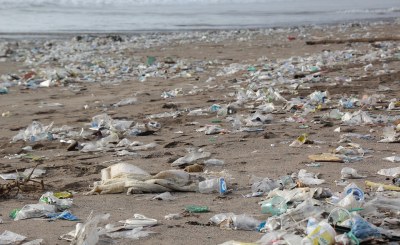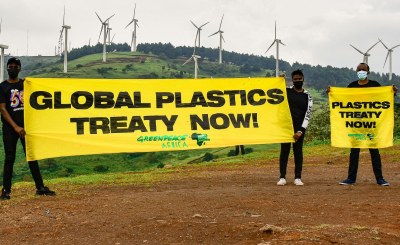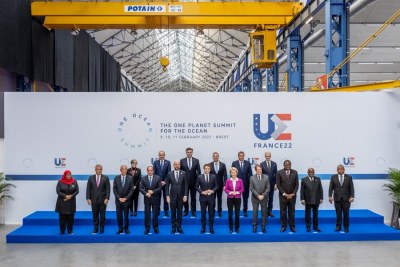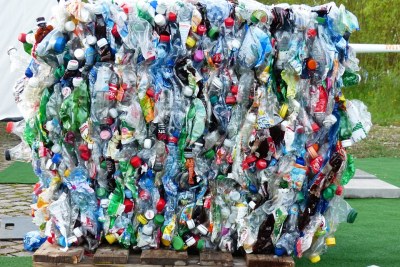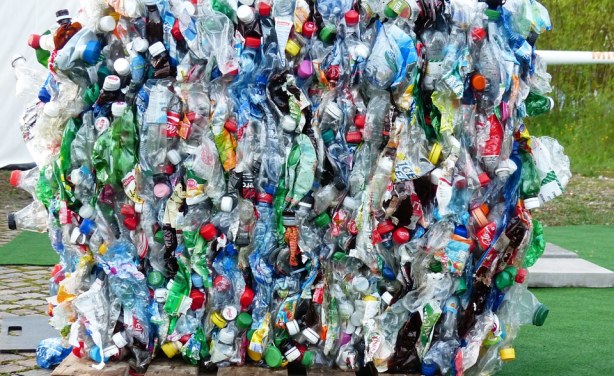-
Nigeria: Nigeria's Plastic Pollution Is Harming the Environment - Steps to Combat It Are Overdue
The Conversation Africa, 27 February 2022
A key theme at this year's United Nations Environment Assembly in Kenya is plastic pollution. It will be returning to a theme from 2018 World Environment Day. The evidence for the… Read more »
-
Africa: Greenpeace Africa Calls On Governments to Endorse a Legally Binding Global Plastics Treaty
Greenpeace, 28 February 2022
For the first time in history, consideration of a global plastics treaty to tackle the plastic crisis is one of the top priorities in the upcoming talks set to begin in Nairobi… Read more »
-
Africa: UNEP Seeking Solution to Issue of Increased Plastic Waste
VOA, 27 February 2022
Decreasing the usage of plastic and increasing its recycling is the aim of a resolution being presented at a United Nations Environment Program conference that opens Monday in… Read more »
-
Africa: What You Need to Know About the UN Environment Assembly
UNEP, 18 February 2022
From 28 February to 2 March, representatives of the 193 Member States of the United Nations, business leaders, civil society and environmentalists from around the world will come… Read more »
Dealing with Nigeria's Plastics Deluge #AfricaClimateCrisis
Decreasing the usage of plastic and increasing its recycling is the aim of a resolution being presented at a United Nations Environment Program conference. According to the UNEP, 300,000 tons of plastic are produced yearly, and only 10% recycled, contributing to environmental pollution is reaching critical levels.
Unfortunately, Nigeria hasn't done much in this regard. Plastic pollution has become such a serious problem in Nigeria that it has virtually become a sign of human activity. People who visit beaches, riverbanks, parks, and waterfalls frequently dump their plastic bottles carelessly, despite the dangers that such plastics pose to the environment, writes Emmanuel O. Akindele for The Conversation.
Nigerian lawmakers considered a bill in 2019 to prohibit the use of plastic bags. The bill is still in limbo. It is yet to undergo further reading and has not been enacted into law. Consequently, plastic bags are being indiscriminately used in Nigeria. The evidence of the harm this does is mounting.
The first step will be to address poor waste management practices prevalent in the country. Businesses will have to stop providing free plastic bags. These bags are often discarded after a single-use. To discourage the practice, governments should levy a high fee on each plastic bag that shoppers get at malls and markets. Paying for a bag could discourage people from discarding them after a single-use. Since packaging is the leading cause of plastic pollution in the environment, the Nigerian government needs to launch a campaign and crackdown on plastic bags and bottles in the country. The public will need to be educated on the three Rs: reduce, recycle, and reuse plastic materials. The government needs to educate the public about the dangers of discarding water sachets and bottles in the environment. And it must ensure access to clean water, reports Akindele.
InFocus
-
African leaders called for intensified effrots to combat plastic pollution, coastal erosion and illegal fishing during the #OneOceanSummit in France. Presidents Hage Geingob from ... Read more »
-
The current situation in South Africa means responsibility for ensuring plastic bottles are recycled lies with consumers and volunteers. When plastic is seen as waste, managing it ... Read more »
